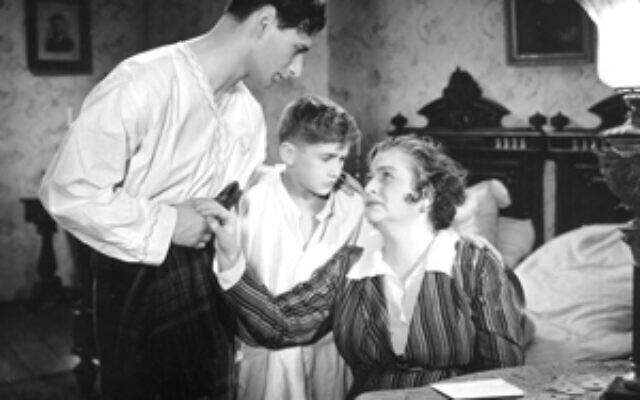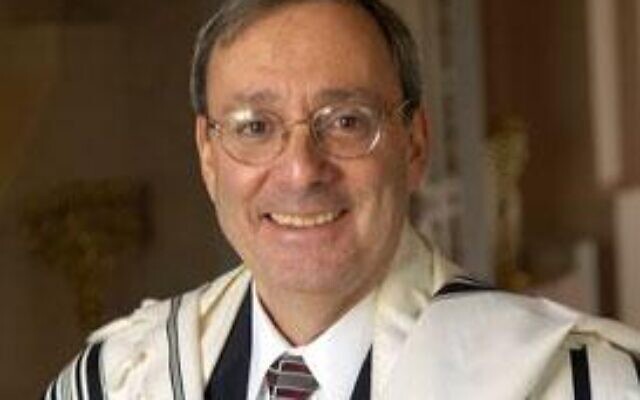A Memory of My Father on Father’s Day
Rabbi Don Tam shares his thoughts and inspiration for Father's Day.
When I was home from the University of Florida on a break in the early ’60’s once, my father asked me if I wanted to go with him and Ma, to the Yiddish theatre on 10th and Washington in Miami’s South Beach, to see a Yiddish vaudeville followed by a Yiddish movie.
There were still enough Yiddish speaking Jews living in South Beach, to fill the theatre once a week on Sunday for a show entirely in Yiddish. This was long before the days of the gentrification of South Beach. “Aw Dad,” I replied, “I won’t understand anything.” “Believe me, Donnie, Yiddish is a language that translates itself,” he said. You will understand more than you think.”
In my childhood years my grandma, Ma and Dad could communicate in Yiddish to each other, my father having been born in Lodz, Poland and Ma, who spoke a very fine Yiddish, having gone to a Peretz Yiddish school in Toronto, but my parents always spoke only English to me.
Finally, in 1964 I decided to go with my father and mother to the Yiddish cinema for a live Yiddish Vaudeville show on stage followed by a movie. My Dad turned out to be correct. The Yiddish vaudeville was so slapstick and funny, I was hysterical. Even only getting the gist of what was going on, I was gasping for breath. My father was a very quiet man and did not talk very much, holding his emotions close to his heart. I only saw him cry once, and that was during a Yuhrtzeit of his mother, whom I never knew.
Even his laughter was controlled. I looked at my father on the other side of my mother and was astounded. He was laughing out loud so hard that tears were rolling down his cheeks. The movie that followed with English subtitles, was good too. A “Brievele Der Mamen” it was, “A Letter to Mama.”

In “Amereka” the Mama searches for her little boy, by now grown up, but cannot find him. Mitin drinnen (suddenly) HIAS invites the Mama to a concert, to help raise money for HIAS. A famous pianist will be playing – a talented genius. The audience goes wild and demands many encores.
The last piece the maestro plays, he introduces with an explanation that this piece is based on a lullaby his mother used to sing to him, made up by her when he lived as a little boy in Poland.
Of course, you guessed it, the piece is based on a lullaby Mama used to sing to her little boy. As he is playing, the Mama in tears, walks down the middle aisle of the theatre with her hands stretched out toward her son on the stage. Then the playing ends, the crowd rushes forward in adulation for the pianist. Mama is pushed to the side as an inconsequential old woman. The pianist disappears to hail a taxi.
The Mama rushes outside to find her grown up son, she sees him getting into the taxi and rushes toward the car, which proceeds to run her over. (If you think this is overly dramatic, even I am crying). The son, horrified rushes to the side of the old woman, insisting the driver and he help lift the woman into the cab, taking her immediately to the hospital. There, after so many years, everything gets straightened out.
The mother, not seriously hurt, goes home with her famous son.
Yiddish audiences do not sit quietly in their seats. There are screams throughout the movie. People are weeping all around me throughout the film. During the film they schrei out advice; yell and hiss at the pogromist antisemites. At the end of the film, the audience explodes into wild applause. I loved every moment of it. I will never forget it. Afterwards I attended every show at 10th and Washington with my parents, when they and I were able to go.
The people who participated in that experience with me are mostly gone now, except for a very few “kids’ like me, who somehow found their way to that theatre. Even this remnant of Yiddish “culture” is gone now, with the common people who loved it. But, at the age of 79, I am not gone yet. I remember with love and gratitude.
I think my father thought of himself as a failure. He could not provide many things for my brother and me, such as a higher education. But he gave me much more than a higher education that I could obtain through my own efforts, my brother doing the same to become a physician.
In later years I learned to read a little Yiddish at Emory University and understand many times over what I did as a child. From the Yiddish Book Center in New England, I have received many Yiddish translations and commentaries on holy books, including the The Tanach, a Treasury of Hassidic Tales, even a Yiddish translation of Aggadot from the Talmud, a Mishnah, and a Yiddish Folks Encyclopedia by Symcha Pietruszka, all of which they gladly sent me for approximately $8 a volume. On my death, they will be returned according to my wish.
My father may have thought himself a failure. However, he gave me a great many gifts that went beyond money, that continue to inspire me and still bear fruit even in my old age.
On this day of his Yuhrzteit, Father’s Day, 2022, 20th of Sivan, 5782, I honor him Yehoshua ben Avraham Mordcai v’Rachel and bless his name for the inheritance he helped bequeath to me, which oriented and helped direct my adult life, as many of our fathers have tried to do.




comments